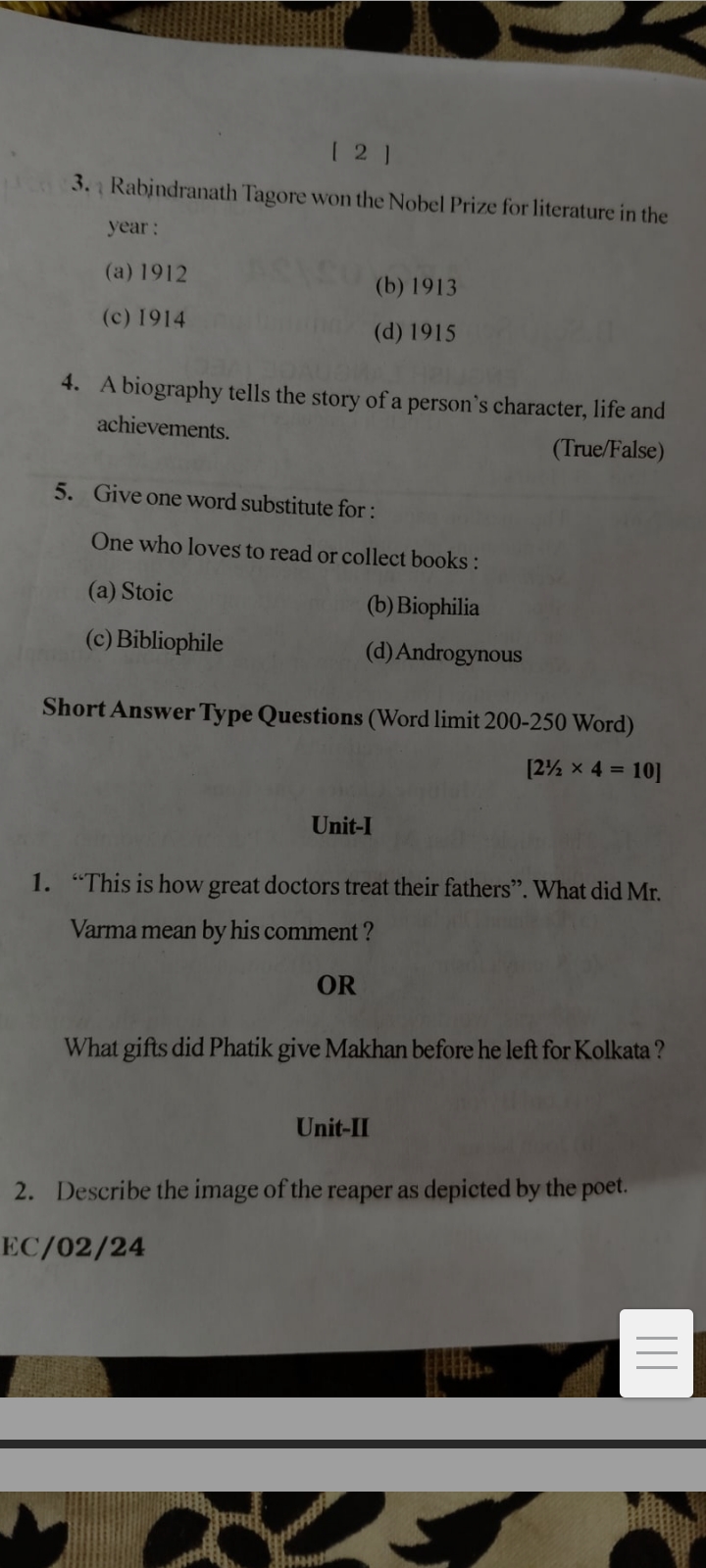Rabindranath Tagore won the Nobel Prize for literature in the year: (a) 1912 (b) 1913 (c) 1914 (d) 1915. A biography tells the story of a person’s character, life, and achievements... Rabindranath Tagore won the Nobel Prize for literature in the year: (a) 1912 (b) 1913 (c) 1914 (d) 1915. A biography tells the story of a person’s character, life, and achievements. (True/False). Give one word substitute for: One who loves to read or collect books: (a) Stoic (b) Biophilia (c) Bibliophile (d) Androgynous. This is how great doctors treat their fathers. What did Mr. Varma mean by his comment? OR What gifts did Phatik give Makhan before he left for Kolkata? Describe the image of the reaper as depicted by the poet.

Understand the Problem
The image contains questions about literature and poetry, particularly focusing on Rabindranath Tagore, the definition of biography, word substitutions, and analysis of literary themes, specifically regarding the image of a reaper as depicted by a poet.
Answer
1913, True, Bibliophile
Rabindranath Tagore won the Nobel Prize for literature in 1913. A biography tells the story of a person’s character, life, and achievements is True. The one word substitute for someone who loves to read or collect books is Bibliophile.
Answer for screen readers
Rabindranath Tagore won the Nobel Prize for literature in 1913. A biography tells the story of a person’s character, life, and achievements is True. The one word substitute for someone who loves to read or collect books is Bibliophile.
More Information
Tagore was the first non-European to win the Nobel Prize in Literature. A biography gives insight into a person's life and achievements, and a bibliophile is someone who loves books.
Tips
Ensure to choose the correct historical facts and meanings of terms.
Sources
- Rabindranath Tagore – Biographical - NobelPrize.org - nobelprize.org
- Rabindranath Tagore | Biography, Poems, Short Stories ... - Britannica - britannica.com
AI-generated content may contain errors. Please verify critical information